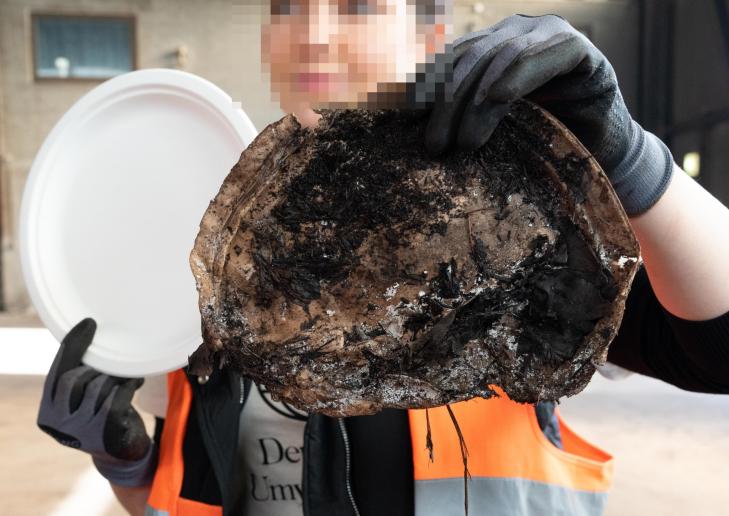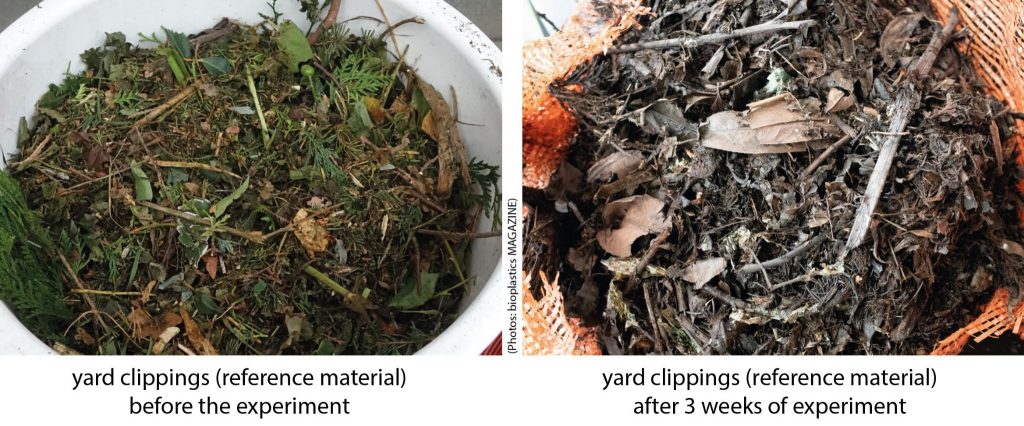
The German Association for Compostable Products (Verbund kompostierbare Produkte e.V., Berlin, Germany) is severely disappointed in view of the latest experiment by the Environmental Action Germany (DUH) on the compostability of bioplastics . In particular, the selection of the tested products as well as the composting conditions are considered misleading.
“In general, we welcome any trial that examines how well our members’ products compost,” says Michael von Ketteler, executive director of the association. “However, in this trial we see fundamental errors, the results of which were foreseeable before the trial began. An opportunity was missed here.”
Faulty trial design and composting conditions
Verbund sees a serious error in the trial set-up. “The usual certifications for industrial compostability in Germany require composting after 12 and 6 weeks respectively. This test provided for a rotting time of only 3 weeks,” says Dr Oliver Ehlert of DIN CERTCO. “As a rule, it is hardly possible to achieve sufficient decomposition results in such a short time interval.”
Another point of criticism relates to the composting conditions: “Using products such as certified compostable biowaste bags and coffee capsules in unused condition neither corresponds to reality nor to the test criteria. Only biowaste bags filled with organic household waste or coffee capsules filled with brewed coffee residues are in line with real consumer behaviour,” says Dr Ehlert.
Photos prove: 3 weeks are not enough even for leaves and twigs
The results show: The certified products decomposed just as well in this test set-up as the leaves and twigs of the green waste used. Photos from the press event at the facility in Swisttal prove that satisfactory results cannot even be achieved in the set 3 weeks for the composting of the green waste itself.
Trial violates waste legislation
Peter Brunk, chairman of Verbund, warns: “Non-certified products, such as a shoe, have no place in the organic waste bin, please”. Except for certified compostable bio-waste bags, no other products may be disposed of in the bio-waste bin or in composting facilities, according to the current (German) bio-waste ordinance. Thus, in the DUH composting trial, there is a clear violation of the current organic waste law for almost all tested products. “I have major scientific and waste law concerns about this trial. It gives the general public a completely false impression,” criticises Peter Brunk.
Nevertheless, Verbund is optimistic about the future: “We are convinced of certified compostable biowaste bags. These not only decisively strengthen the circular economy, but also protect our resources and our climate” concludes Peter Brunk. “We would have been pleased if we could have contributed our expertise, but unfortunately our offer was rejected by DUH.”

Source
Bioplastics MAGAZINE, 2022-11-15.
Supplier
Deutsche Umwelthilfe e.V. (DUH)
DIN CERTCO Gesellschaft für Konformitätsbewertung
Verbund kompostierbare Produkte e.V.
Share
Renewable Carbon News – Daily Newsletter
Subscribe to our daily email newsletter – the world's leading newsletter on renewable materials and chemicals












